Submitted by Elif Merve Unsal
The City announces the five big ideas for Small Lots in New York City
United States Architecture News - May 16, 2019 - 20:08 17877 views
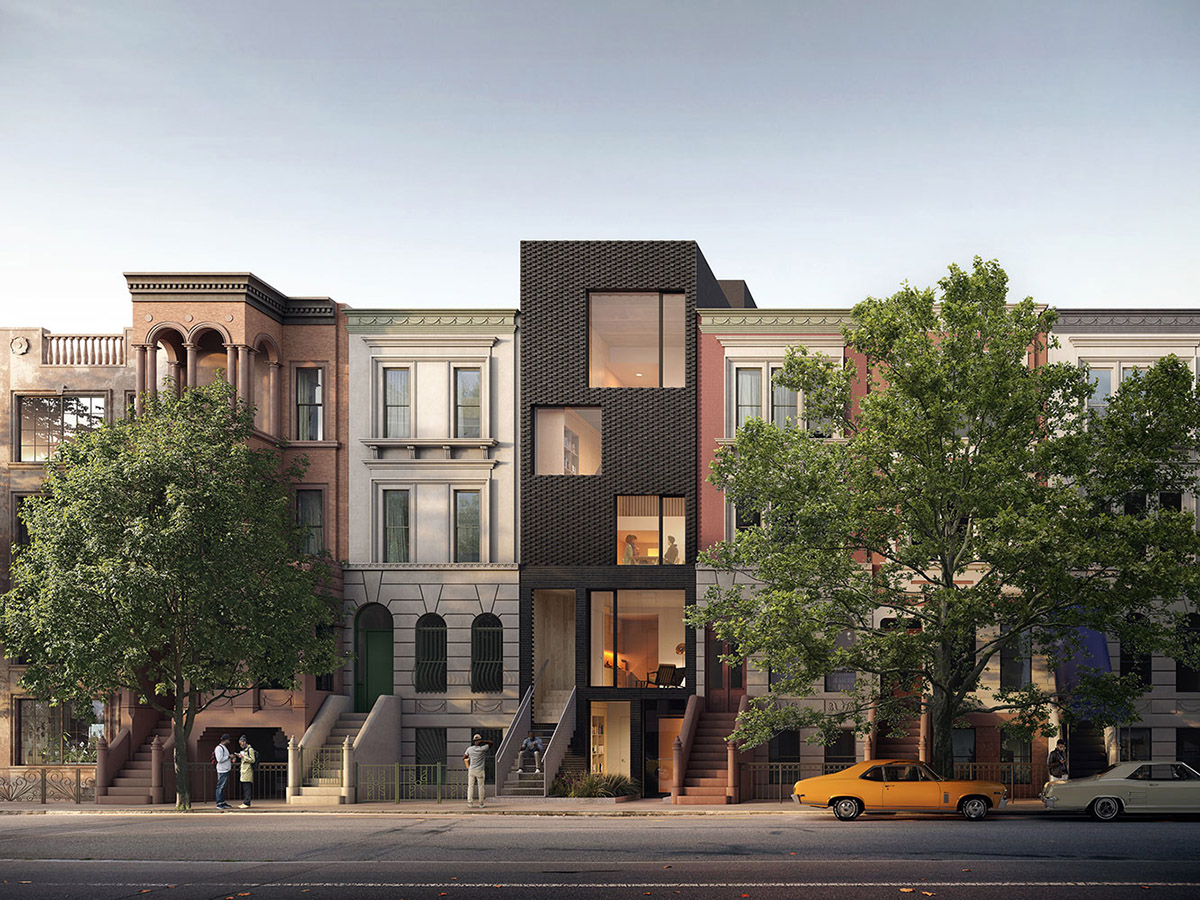
The affordable housing shortage in New York City has reached a crisis point. Mayor Bill de Blasio has made affordable housing a top priority of his administration and has committed the City to "build or preserve nearly 200,000 affordable units, and help both tenants and small landlords maintain the quality and affordability of their homes."
As part of the Mayor’s Housing New York 2.0 plan, which targets 300,000 affordable homes by 2026, “Big Ideas for Small Lots” design competition launched in February 2019 to invite designers to come up with ideas to build livable, affordable housing that would fit on New York City’s most challenging lots.
Organized by New York City Department of Housing Preservation and Development (HPD) and the American Institute of Architects New York (AIANY), the competition seeks to address the challenges associated with the design and construction of affordable housing on underutilized City-owned lands.
Architects and designers around the world submitted 444 proposals from 36 countries. Five of them have been selected as finalists. "To unlock some of our most difficult-to-develop sites we needed to take a fresh approach and taking that leap has paid off," HPD Commissioner Louise Carroll said in a statement. “Out of the hundreds of proposals that we received from teams around the world, these five were unparalleled in their use of innovative design to solve for the challenges that have left these lots underutilized.”
"As a jury, we looked for inventive proposals that considered the residents as well as the communities beyond. We discussed design quality broadly, with a focus on technical feasibility. Accessibility, both physical and economic, was also an important consideration," Hayes Slade, the AIANY 2019 President and a jury chair, added.
By engaging the architectural community as critical partners, the HPD hopes to demonstrate feasible, replicable housing solutions across various sites and promote excellence in urban infill design.
The finalists will now work with HPD to convert their winning designs into affordable housing development proposals to be reviewed and approved by the agency. HPD will facilitate a series of workshops, networking opportunities, and other tools to assist the teams in developing their proposals.
AIA New York will curate an exhibition at the Center for Architecture highlighting the winning submissions, opening on August 1st and display through the Fall of 2019.
The Finalists (in alphabetical order):
Mass Green Living by Anawan/101 + Kane AUD
The proposal is a collaboration between the principals of two architecture firms: Jeremiah Joseph of Anawan/101 and Ted Kane of Kane AUD. Anawan/101 is a one-person, New York City-based firm with more than 20 years of experience working on a variety of projects from initial design phase through completed construction. Kane AUD is a design-oriented practice with a focus on design and construction. Kane has more than 15 years of experience and is professionally licensed in New York and California.

"Mass Green Living" features five units in an approximately 5,900 square-foot building that includes a multi-use, ground-level common area referred to as the “urban garage.” The submission was selected based on its mix of unit types, its adaptability, and the use.
"We want to show how affordable housing can provide better, healthier spaces for living and build ideas of community," said Jeremiah Joseph of Anawan/101. “Our idea of the Urban Garage creates an extension of each apartment into shared areas, combining and elevating everyday uses with more dynamic social gatherings, making a place where everyone is included, and everyone shares.”

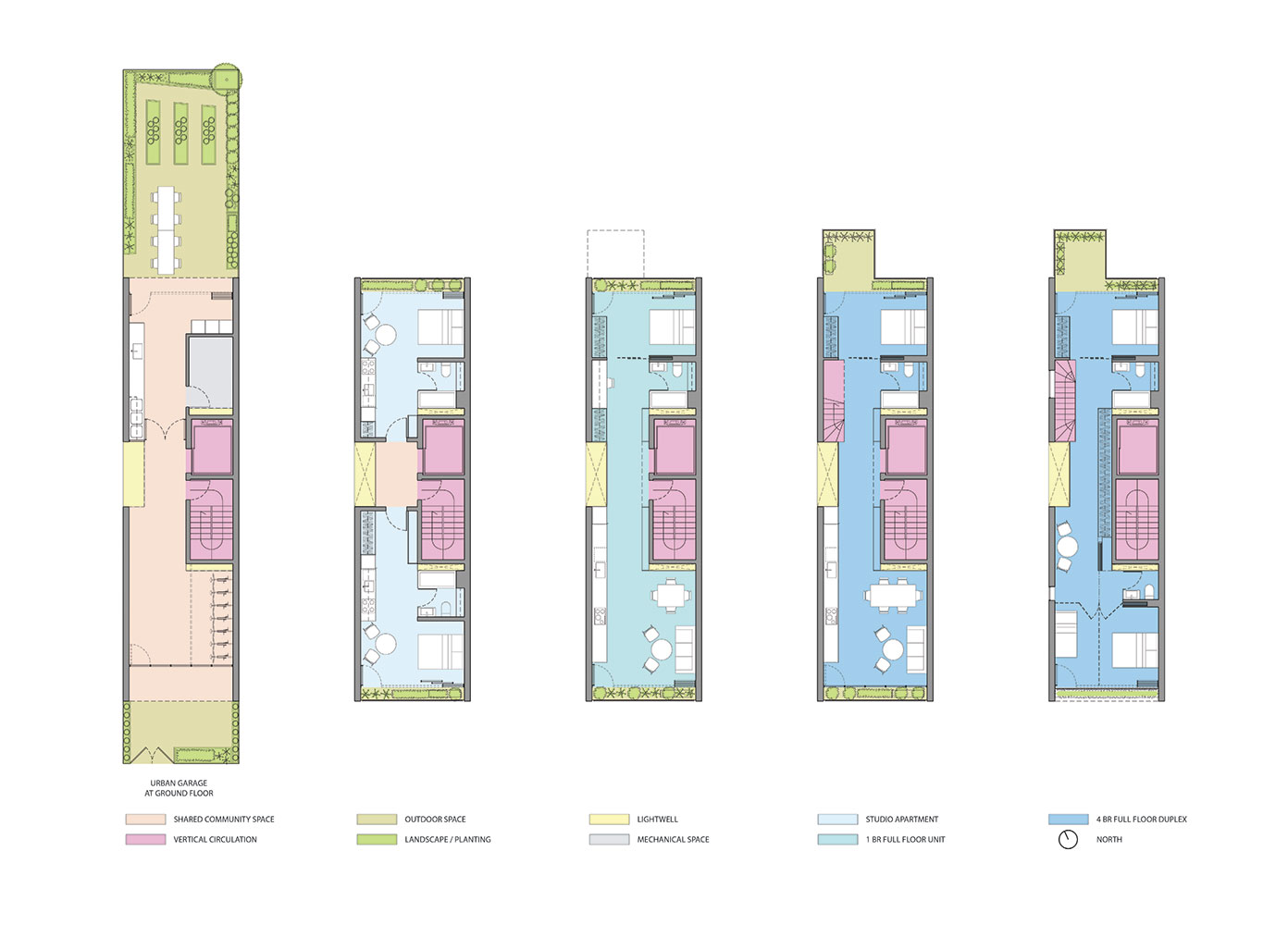
Greenfill Housing as Garden by Michael Sorkin Studio
Michael Sorkin Studio is a New York City-based global design practice that specializes in urbanism and green architecture. Recent projects include a master plan for a new environmental research park in Wuhan, China as well as a 1,000-unit resort in Coffs Harbor, Australia. The studio has been the recipient of numerous design awards.
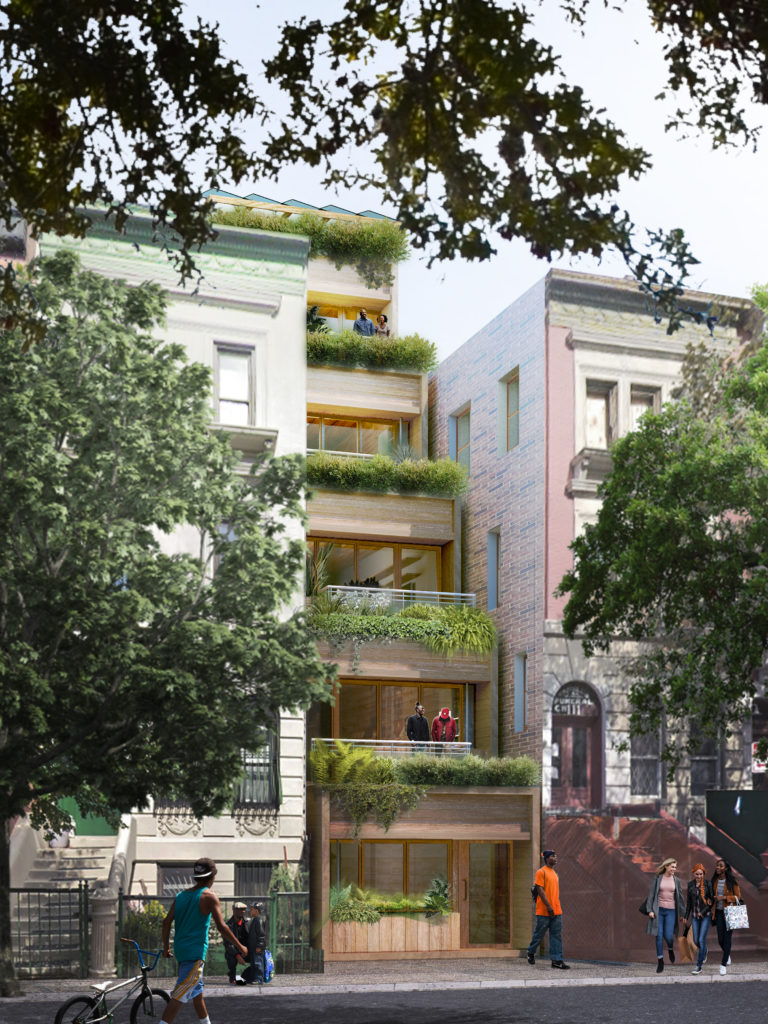
"Greenfill House as Garden" proposes seven units in an approximately 4,430 square-foot building. The façade steps back at every level to create a terraced effect. The submission was selected based on its ability to provide outdoor spaces, its clever use of space, and its comprehensive use of sustainable features to minimize the building’s environmental footprint.
"House As Garden investigates from scratch a typical situation in New York: the evolution of the row house into a multiple dwelling, a conversion full of problems. Our proposal offers the most advanced – Net Zero – environmental performance, a habitat for new and shared life-styles, greatly enhanced daylighting, new and economical construction techniques and materials, and active community involvement – via employment and training – in filling these waiting gaps in the fabric of the city," said Principal and Founder of Michael Sorkin Studio, Michael Sorkin.
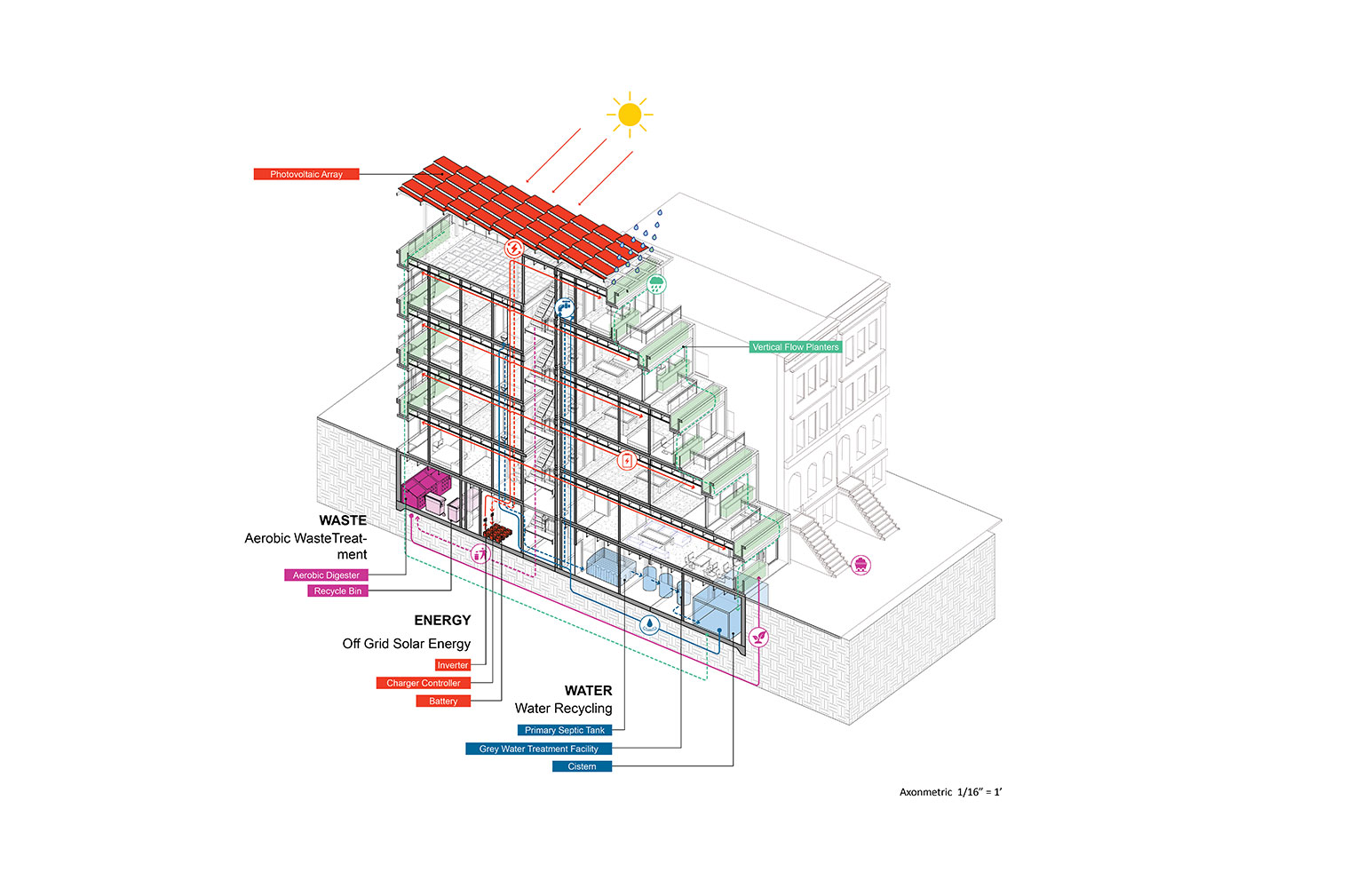
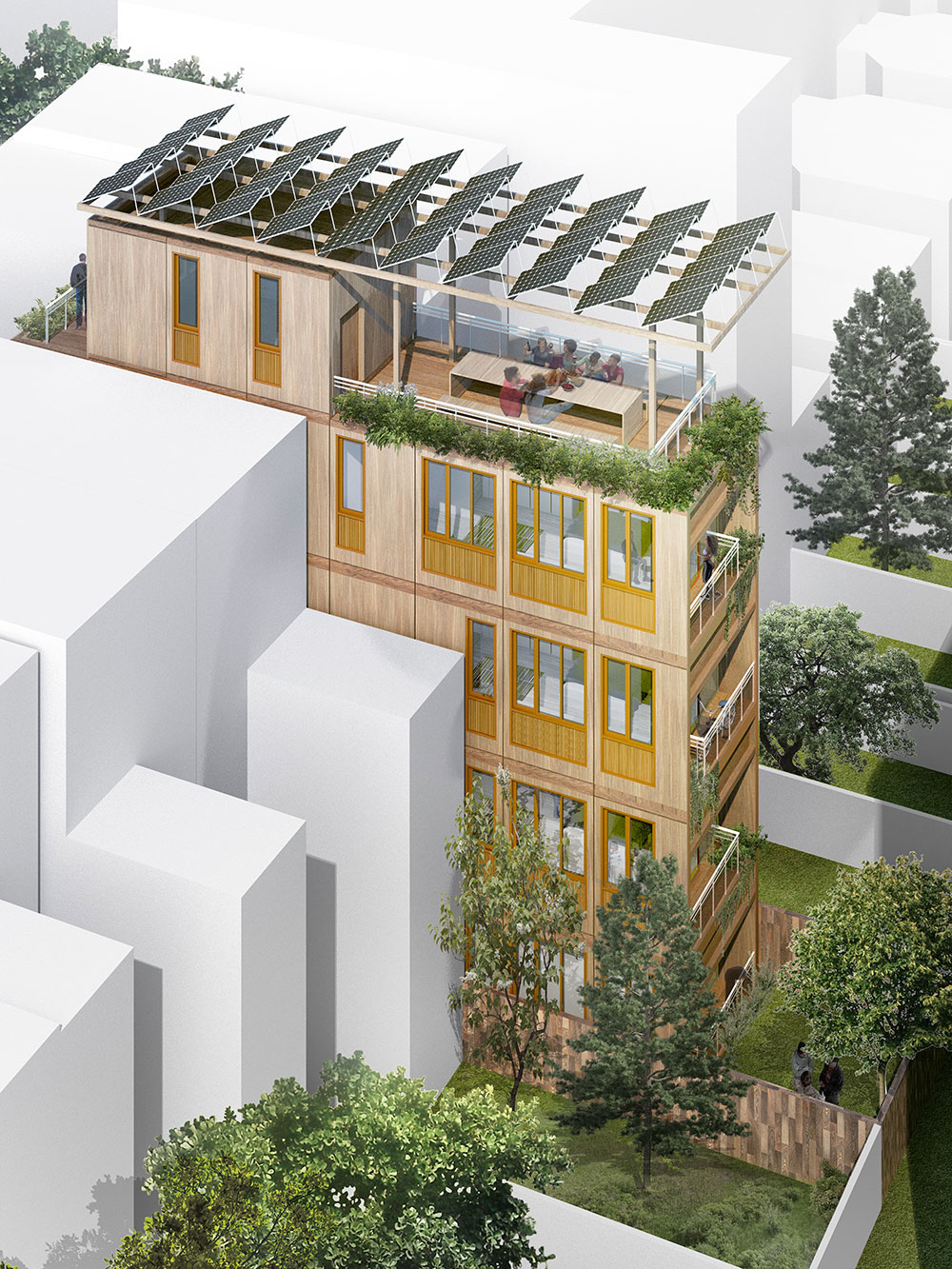
Fold and Stack by OBJ (Yushiro Okamoto, Ryan Botts, Merica Jensen, with Lindsay Kunz)
OBJ is a collection of four architects that currently work for Diller, Scofidio, and Renfro in New York City and Olson Kundig in Seattle, Washington. The team members have a combined 25 years of experience working on a variety of projects internationally, including the recently constructed The Shed in Hudson Yards.
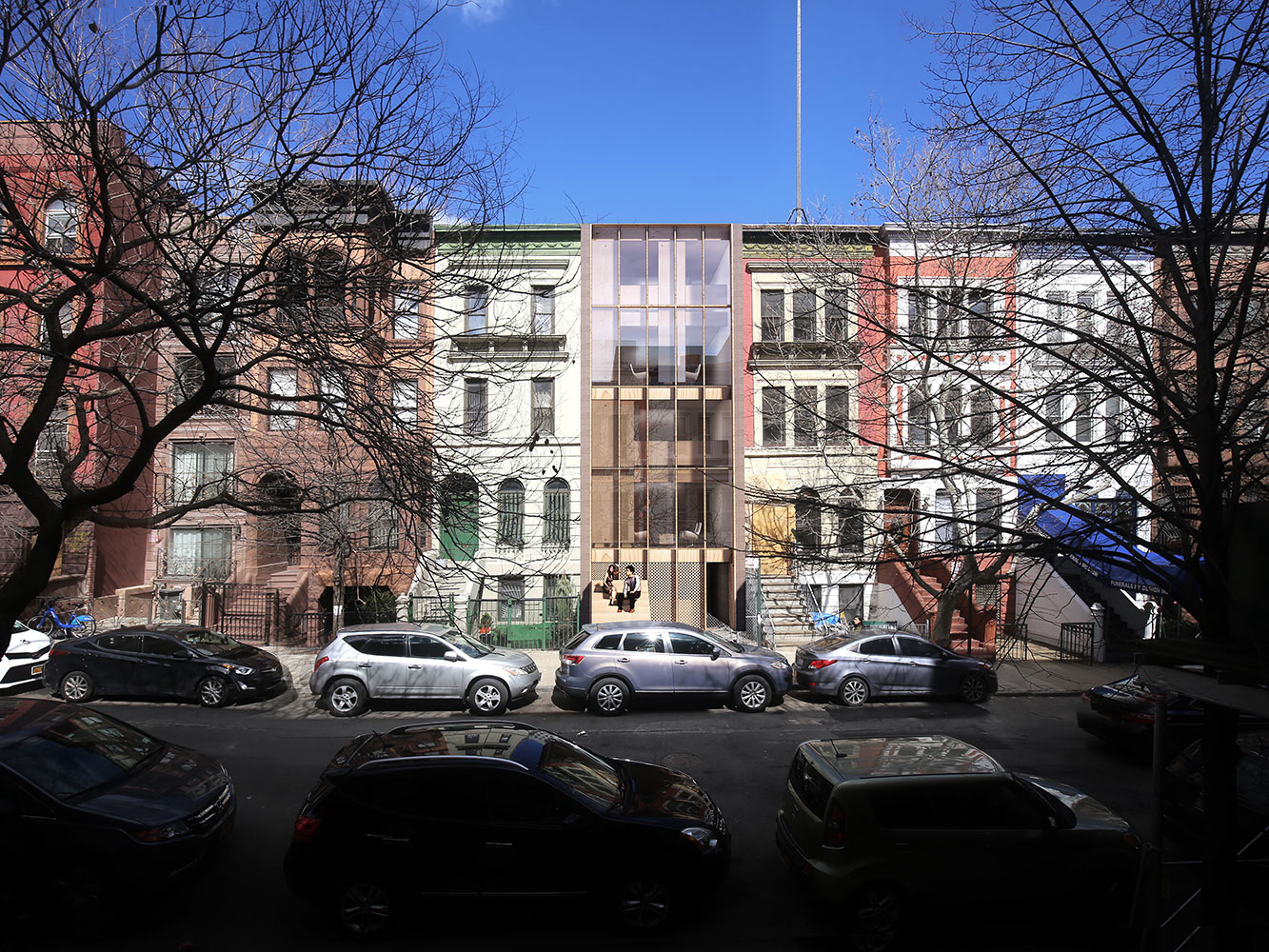
"Fold and Stack" features five units in an approximately 5,540 square-foot building organized around an interior courtyard. The submission was selected based on the design’s intelligent use of modular construction, its successful use of double-height spaces to create a vertical community, and its successful integration of lighting and ventilation techniques to create an interior courtyard that also encourages social interaction.
"We’re excited to be participating in the future of NYC housing," said Partner at OBJ Merica May Jensen. "As New Yorkers, we asked ourselves, ‘what do you do when you have limited space?’ You fold and stack! The double-height ‘stacked’ unit is easy to reconfigure on a variety of sites – meaning the small lots are no longer design obstacles, but design opportunities."


Only If by Only If Architecture
Only If Architecture is a New York City-based design practice for architecture and urbanism founded in 2013 and led by Adam Snow Frampton, AIA, and Karolina Czeczek. The firm’s projects span a range of different types and scales, from interior design to residential new construction and research.
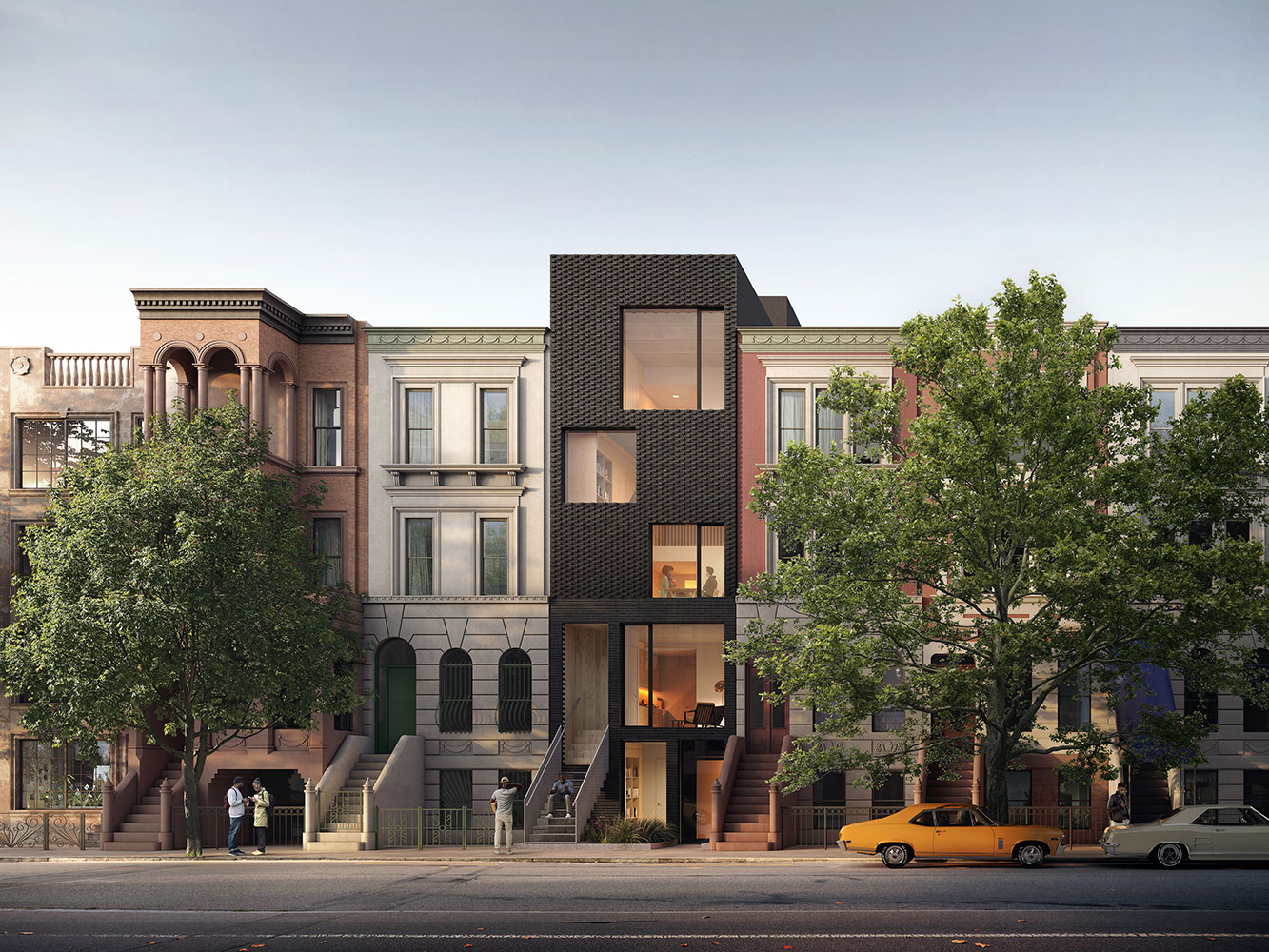
"Only If" features seven units in an approximately 4,900 square-foot building. The submission was selected based on its use of innovative built-ins to produce compact functional spaces, its ability to provide seven units that range in size from micro to two-bedrooms, its variable façade treatments, and its ability to exemplify how intentional design can elevate a traditional rowhouse
"For the past several years we’ve been examining the specific and cumulative potential for housing on New York City’s irregular, narrow, and leftover land, both through our exhibited research, but also through a 13’-4” wide house now under construction in Brooklyn. Our proposal draws on this expertise and, to ensure its feasibility, strategically avoids the infrastructure of larger buildings. We are excited the city has initiated this project and thrilled to work on the next phase," said Principal of Only If Adam Frampton, AIA.
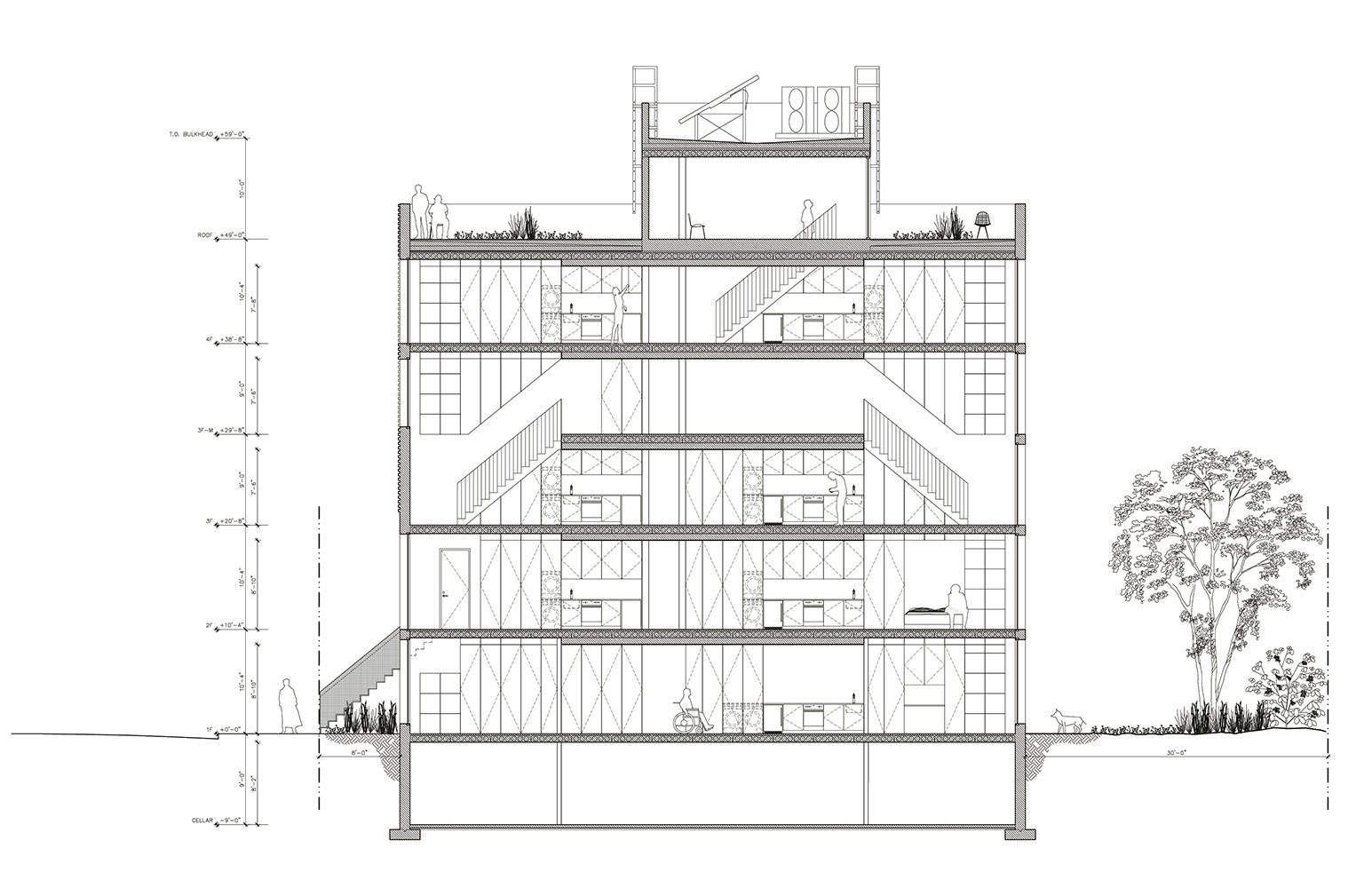
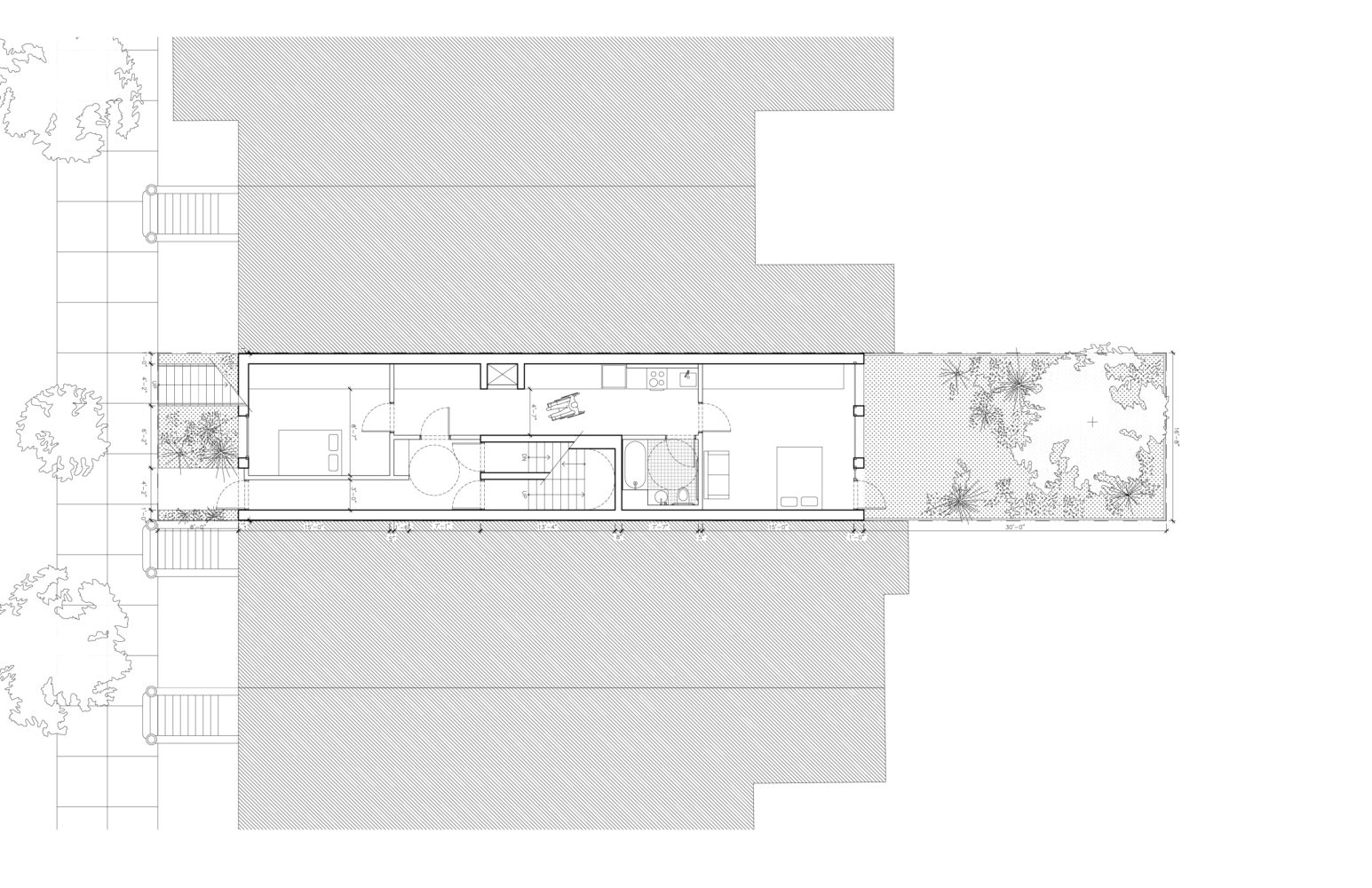
More with Less by Palette Architecture
Palette Architecture is a full-service, New York City-based design and architecture practice founded in 2010 with 11 employees. Their work ranges from small-scale new construction residential projects to fit-out and interior design of non-profit office spaces.
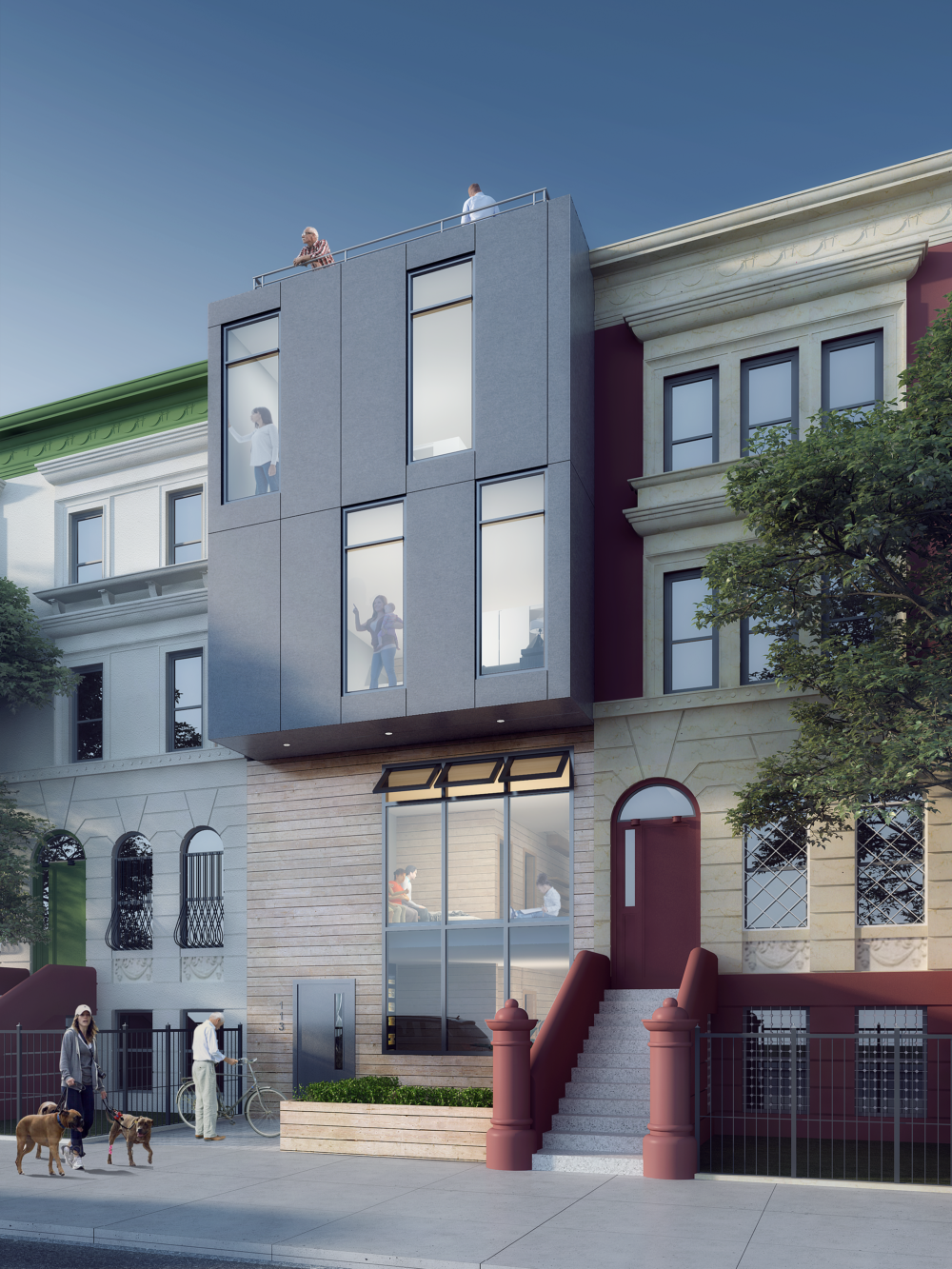
"More with Less" is a 3,700 square-foot building that features two units, one of which is a co-living space with four individual rooming units. The submission was selected based on its ability to provide a model for co-living that demonstrates intelligent consolidation and organization of different types of spaces, the way public and private spaces intersect, and for serving as a good example of how a small lot can accommodate modern housing trends.
"Our proposal seeks to economically house residents in contextually scaled developments. By promoting shared resources and flexible spaces, we strengthen community, maximize the number of residents we can serve, and minimize construction costs. The result is an alternate form of living that can help the city address the ongoing need for housing," said Partner at Palette Architecture Peter Miller.
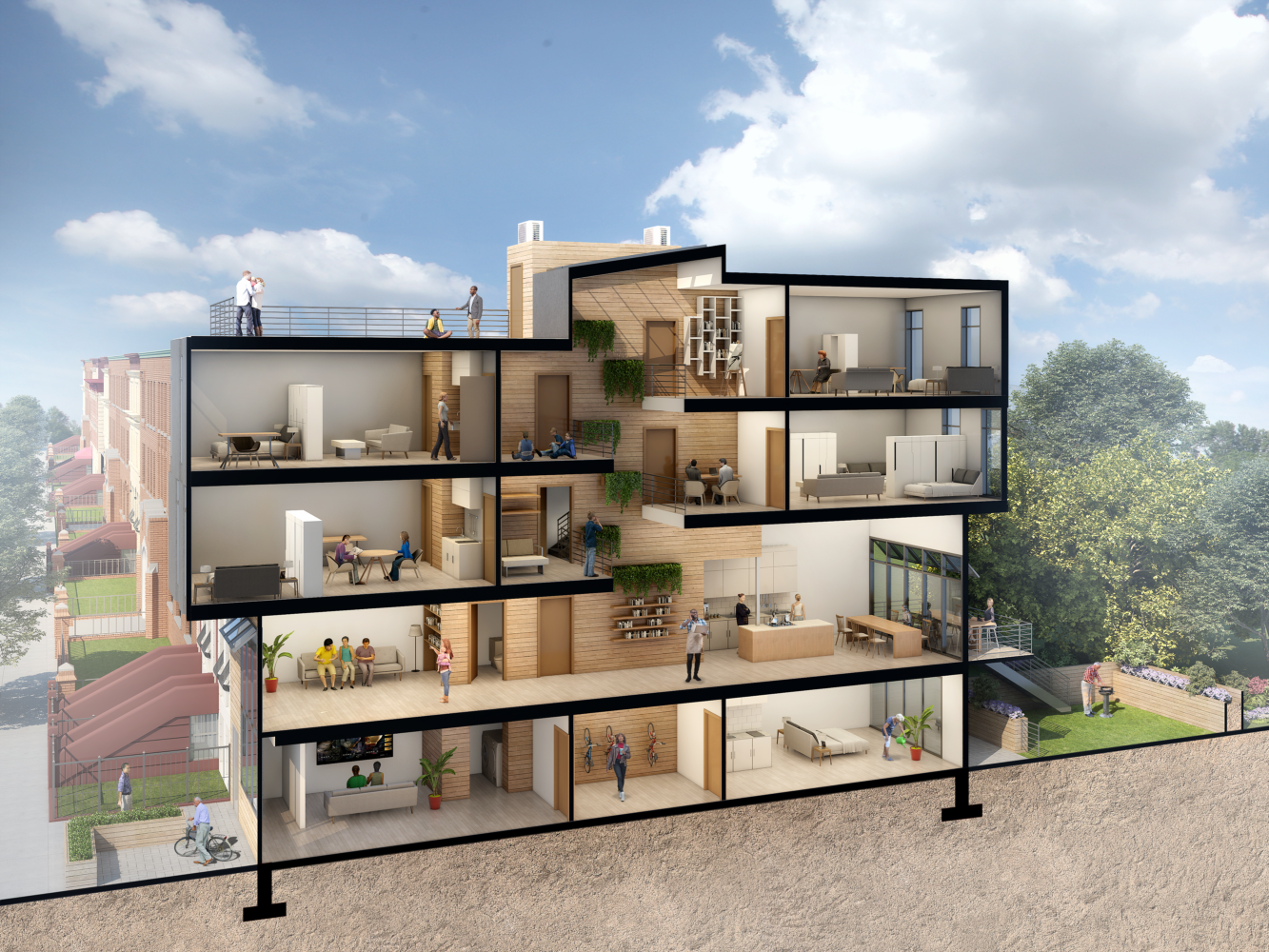
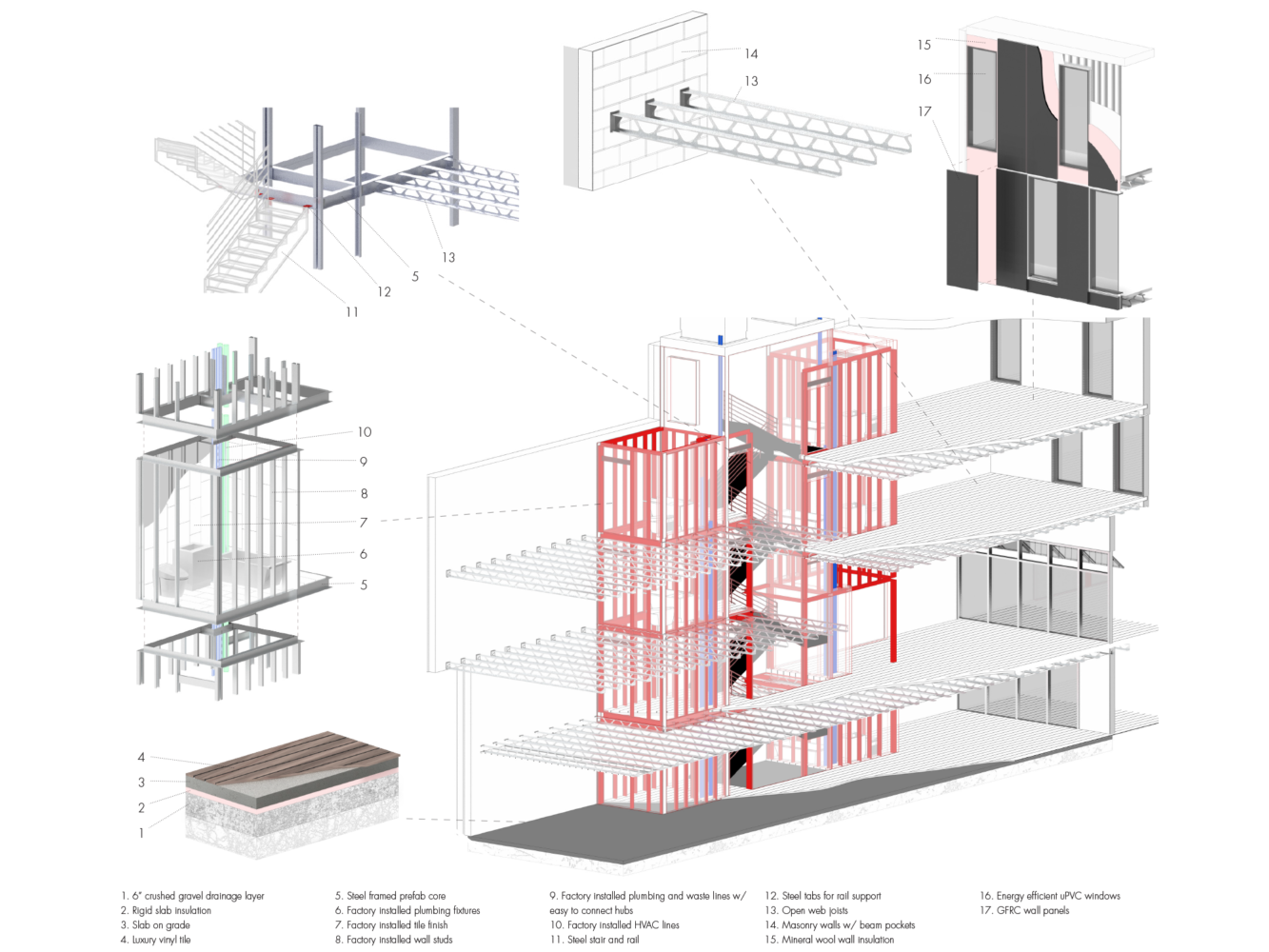
All images © AIA New York
> via AIA New York
